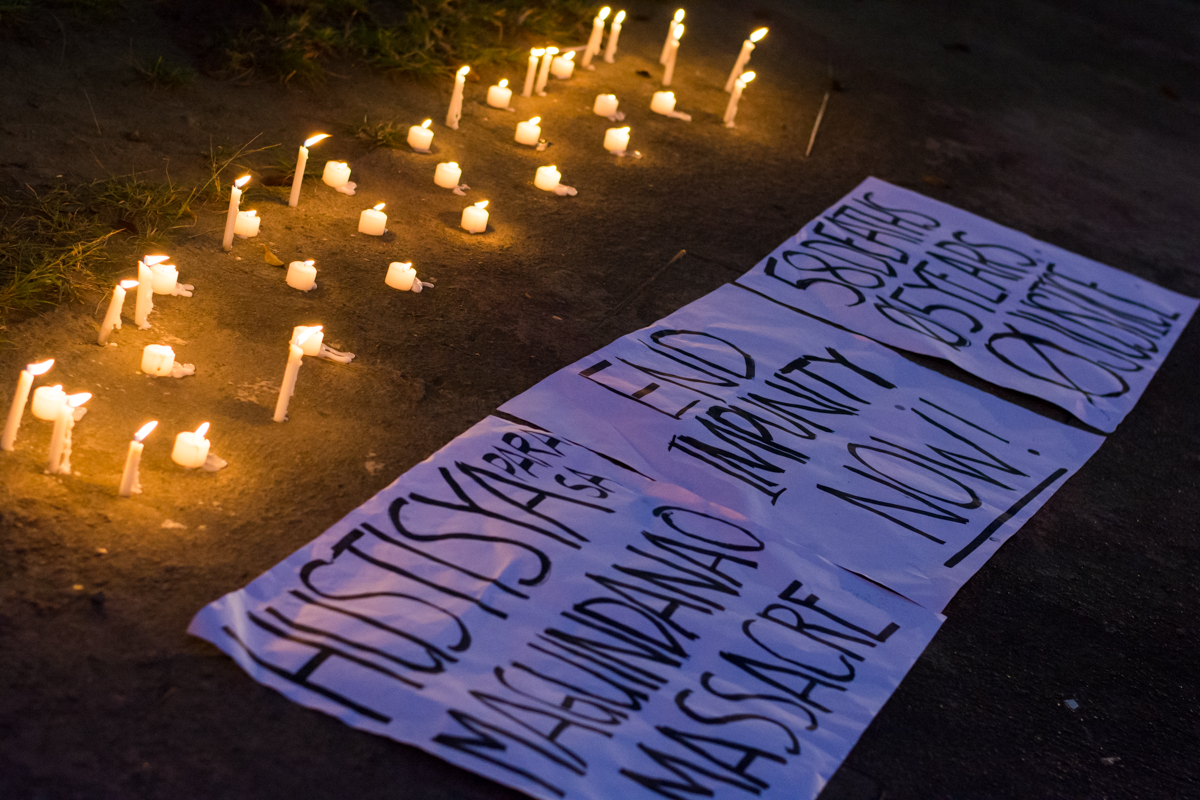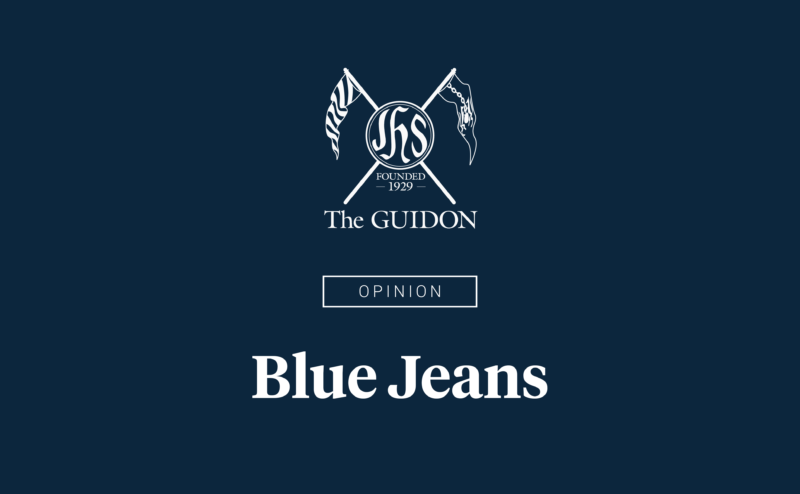A PRAYER vigil in commemoration of the victims of the Maguindanao Massacre was held by various Ateneo student groups on November 24, a day after the fifth anniversary of the killings.
The prayer vigil was organized by the Ateneo Enterteynment Para sa Tao, Bayan Lansangan at Diyos (Entablado), Matanglawin, the Analysis and Discourse Cluster of the Council of Organization of the Ateneo and the Christian Union for Socialist and Democratic Advancement (Crusada).
Students who gathered at the Zen Garden carried placards with the words, “Ateneans never forget” and “End impunity now.”
A prayer was delivered and the hymn, “One more gift,” was sang before the attendees marched to Gate 2.5 to light candles.
Upon reaching Gate 2.5, performers from Entablado performed a re-enactment of the Maguindanao massacre.
The attendees then offered a minute of silence for the victims before the placards and lit candles were placed on the sidewalk.
Five years later
On November 23, 2009, 58 individuals, including 32 media men, were massacred in what was believed to be a politically-motivated slaying.
In March 2014, the prosecution rested its case against alleged mastermind Datu Ampatuan Jr. and the 27 remaining suspects from the original 198 individuals.
Crusada Premier Abbo Hernandez declared that the longer it takes for cases to be settled, the less important people think it is.
“The longer it takes for a case to not get solved, that means it is more pressing to solve it already. Kasi, you’ve delayed the justice system. (It’s because you’ve already delayed the justice system),” Hernandez added.
The vigil’s promotional materials were only released on November 23, however, and there were only a few students present.
In response to the low attendance, Hernandez mentioned said that fewer and fewer people are commemorating the tragedy of the Maguindanao Massacre. He noted that people naturally cannot help but forget and that these “old” issues are not subjects people frequently talk about and are thus, swamped by new ones.
Crusada member Christian Dy commented that the forgetfulness that people have is the result of the dynamics of social memory which tends to reduce trauma.
Dy said that this “social amnesia” that people are experiencing is forced and that the people responsible for it are still in power.
“So, by having events like [this vigil], although they are not well attended, we are trying to reverse that trend. We are trying to, at least, remind people that injustice happens,” explained Dy.







